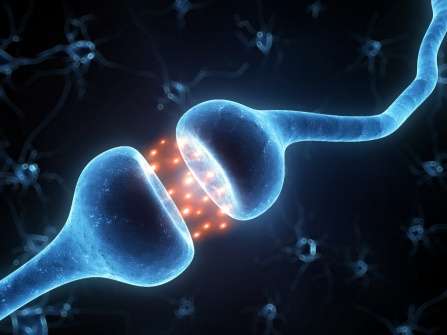Discovery of new neural pathway may lead to preventing relapses in addicts

Researchers at the University at Buffalo have discovered a previously unknown neural pathway that can regulate changes made in the brain due to cocaine use, providing new insight into the molecular basis of cocaine addiction.
"Addiction is a life-long affliction manifested by episodes of relapse, despite prolonged abstinence," says Amy Gancarz, PhD, lead author of the study, which was published on June 1 in an Advance Online Publication in Nature Neuroscience. "There is a need to more fully understand the long-term molecular changes in the brain involved in drug craving and relapse."
Gancarz, a former postdoctoral associate with the UB Research Institute on Addictions (RIA), worked on the study under the direction of senior author David Dietz, PhD, assistant professor in the Department of Pharmacology and Toxicology in UB's School of Medicine and Biomedical Sciences. Dietz is also a faculty member in UB's Neuroscience Program and an affiliated scientist with RIA.
The study found that by manipulating the activity of Activin receptors—receptors found in the brain—the researchers were able to increase or decrease cocaine-taking and relapse behavior in animal models. The study focused, specifically, on Activin receptors in regions of the brain that are involved in pleasure and reward.
"There are changes in the brain caused by drug use that occur and persist, but are only unmasked after withdrawal from a drug—in this case, cocaine," Dietz says. "Cocaine use alters the connections between certain neurons through changes in the shape of the cells."
The researchers discovered that the Activin pathway controls the ability of cocaine to induce this change in the neurons and determined that the Activin receptor may control this response to cocaine by regulating the expression of a number of genes.
"Understanding this critical pathway will help us pursue new directions in potential pharmacological and gene therapies to prevent drug relapses," Dietz says. "If we can control this pathway, we may be able to help prevent relapses in people who have been abstinent from cocaine."
More information: "Activin receptor signaling regulates cocaine-primed behavioral and morphological plasticity." Nature Neuroscience (2015) DOI: 10.1038/nn.4036


















